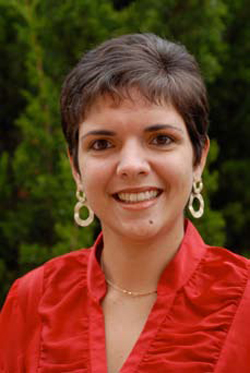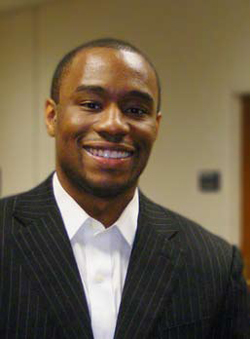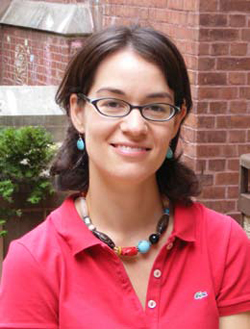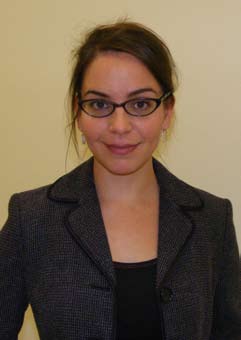New on the Faculty, Part II
Four new TC professors discuss their scholarly and professional interests
Adriana Abdenur
Assistant Professor of International and Comparative Education
What is the academic path that led you to TC?
I earned a master’s degree in comparative and international education at TC, and then left to do a Ph.D. in sociology at Princeton . I finished in 2006 and spent three years as an assistant professor of international affairs at the New School
What will you be teaching?
This fall, I am teaching Issues and Institutions in International Education Development for master’s and doctoral students. In the spring, I’ll be on a research Fulbright in Brazil
What are your academic passions?
Broadly speaking, as a sociologist I am interested in how the production of social inequality occurs, particularly viewed within the context of rapid social change. In my work on urban development and comparative education, I try to identify and analyze social innovations for both inclusion and exclusion. It never ceases to amaze me how creative people can be when they want to exclude others. For example, I’ve found that the rhetoric on sustainable development is sometimes invoked as a politically correct justification to displace vulnerable populations for the sake of development. In both Brazil and South Africa
I also strongly believe in the value of rigorous comparative research. Most of my own research and teaching is comparative. Comparative research poses a number of challenges for research design and logistics, but when carried out well, it can be very powerful. There are positive innovations in New Delhi that could benefit stakeholders in Rio de Janeiro
Marc Lamont Hill
Associate Professor of English Education
What is the academic path that led you to TC?
I taught high school Spanish and English in Philadelphia before going to graduate school at the University of Pennsylvania Temple
What will you be teaching?
I’m teaching two courses this semester. One is called Popular Texts in the English Classroom, where we explore the relationship between popular culture and pedagogy. The second course is Socio-cultural Approaches to Reading
What are your academic passions?
Two things interest me a great deal. One is trying to figure out ways to re-imagine school so that it is more responsive to the lived experiences of marginalized groups. My second interest is in literacy as a practice and trying to understand in a more complex way how literacy affects identity. I’m primarily interested in the role of literacy in the lives of African American men. My most recent project is looking at the role literacy plays in the out-of-school lives of African American men.
Judith Scott-Clayton
Assistant Professor of Economics of Education
What is the academic path that led you to TC?
I completed my Ph.D. in public policy at the Harvard Kennedy School of Government in June, where I specialized in labor economics and higher education policy. I also participated in a multidisciplinary program on inequality and social policy. While at the Kennedy School
What will you be teaching?
I will be teaching an applied labor economics course in the spring, for doctoral students and advanced master’s degree students, that will provide an overview of important labor market concepts and focus on empirical applications.
What are your academic passions?
My passion is to apply rigorous research methods to policy-relevant questions, particularly questions about how best to address inequality in educational opportunities and outcomes. In many cases, very little evidence is available to guide policymakers one way or another, so it is very fulfilling to be able to help fill in some of the gaps. It also provides a strong motivation to do good research, especially when people might actually change policy based on one’s conclusions. One of my current interests is the ways in which policy packaging, not just policy content, can have major consequences for how well a policy works. For example, although the federal Pell Grant program is the largest single provider of college grants, many high school students have never even heard of the program. Ideally, these grants would serve as a college incentive, but because the grant formula and application process have historically been very complicated, students may not learn about their eligibility until after they are already admitted. The concern and opportunity is that the intent of a policy can be undercut or augmented by the ways in which it is packaged and delivered.
Mariana Souto-Manning
Associate Professor of Early Childhood Education
What is the academic path that led you to TC?
I’m an early childhood teacher at heart. I enjoy spending time with young children, learning and playing with them. I taught young children in U.S. public schools and in Brazil University of Georgia and the University of South Carolina , Columbia
What will you be teaching?
During the 2009-2010 academic year, I’ll be teaching Multicultural Approaches to Teaching Young Children, and Language and Literacy in Early Childhood, both in the Curriculum and Teaching program.
What are your academic passions?
My passion is to make education more equitable and accessible, more inclusive. I am committed to contributing toward education that values diversities as assets rather than deficits. In my research, I examine the process of culturally and linguistically diverse children’s changing participation within socio-cultural activities in homes, schools and communities. I study how children, families and teachers from diverse backgrounds shape and are shaped by discursive practices as well as the ways in which children develop language and literacy while involved in socio-cultural activities as they simultaneously inherit established language and literacy practices. Thus, my line of research focuses on building deeper understandings of linguistic and cultural diversity in the field of early childhood education, providing windows into the educational practices of young children and families from populations that are often marginalized.
Published Wednesday, Nov. 4, 2009



